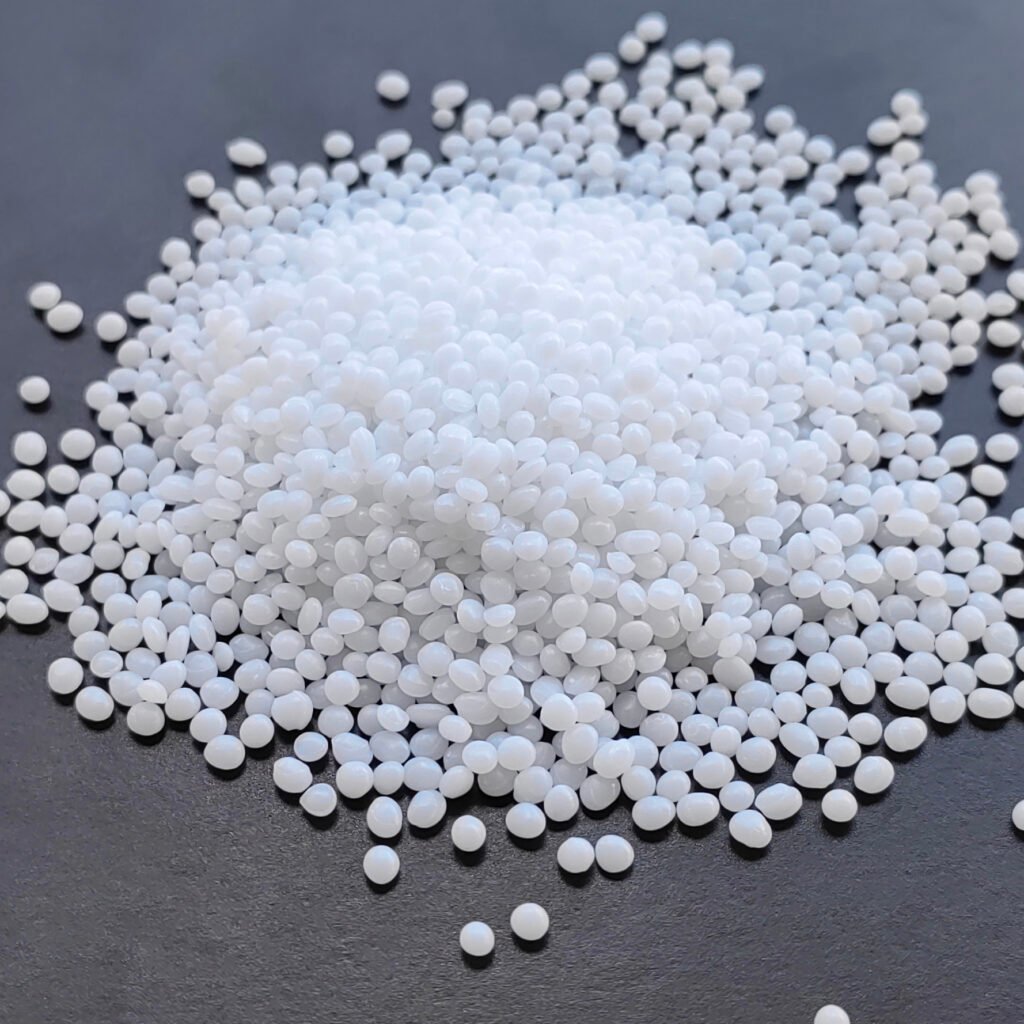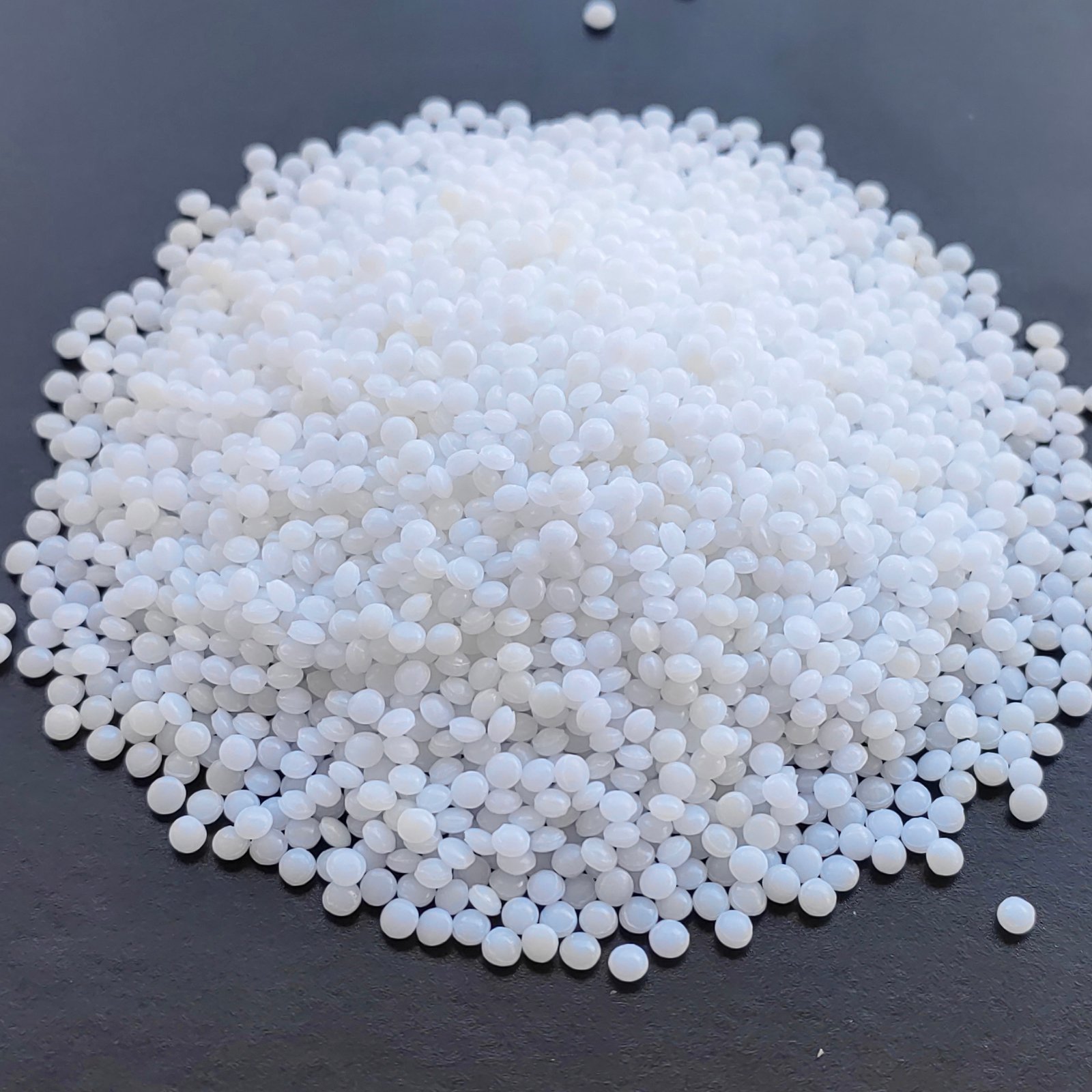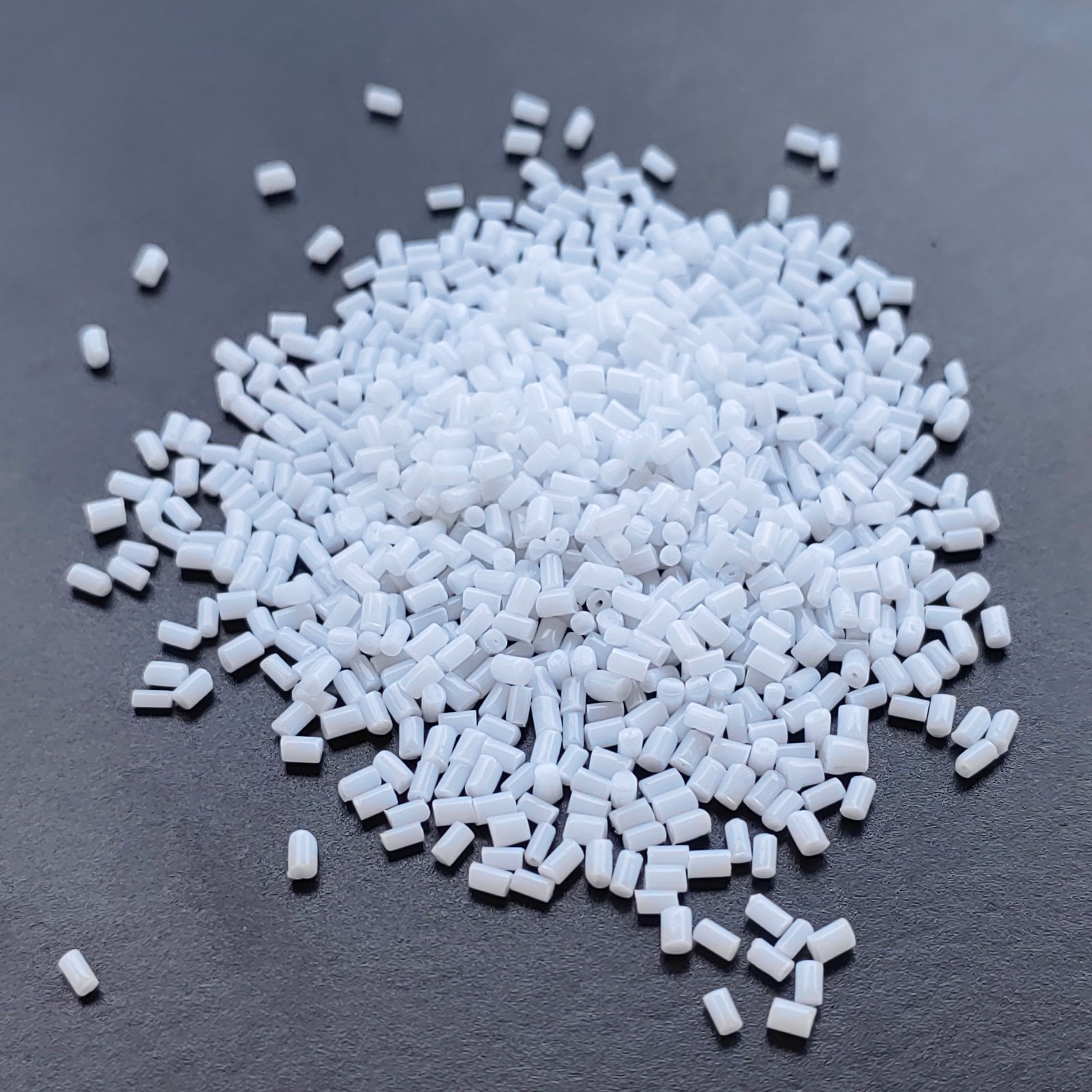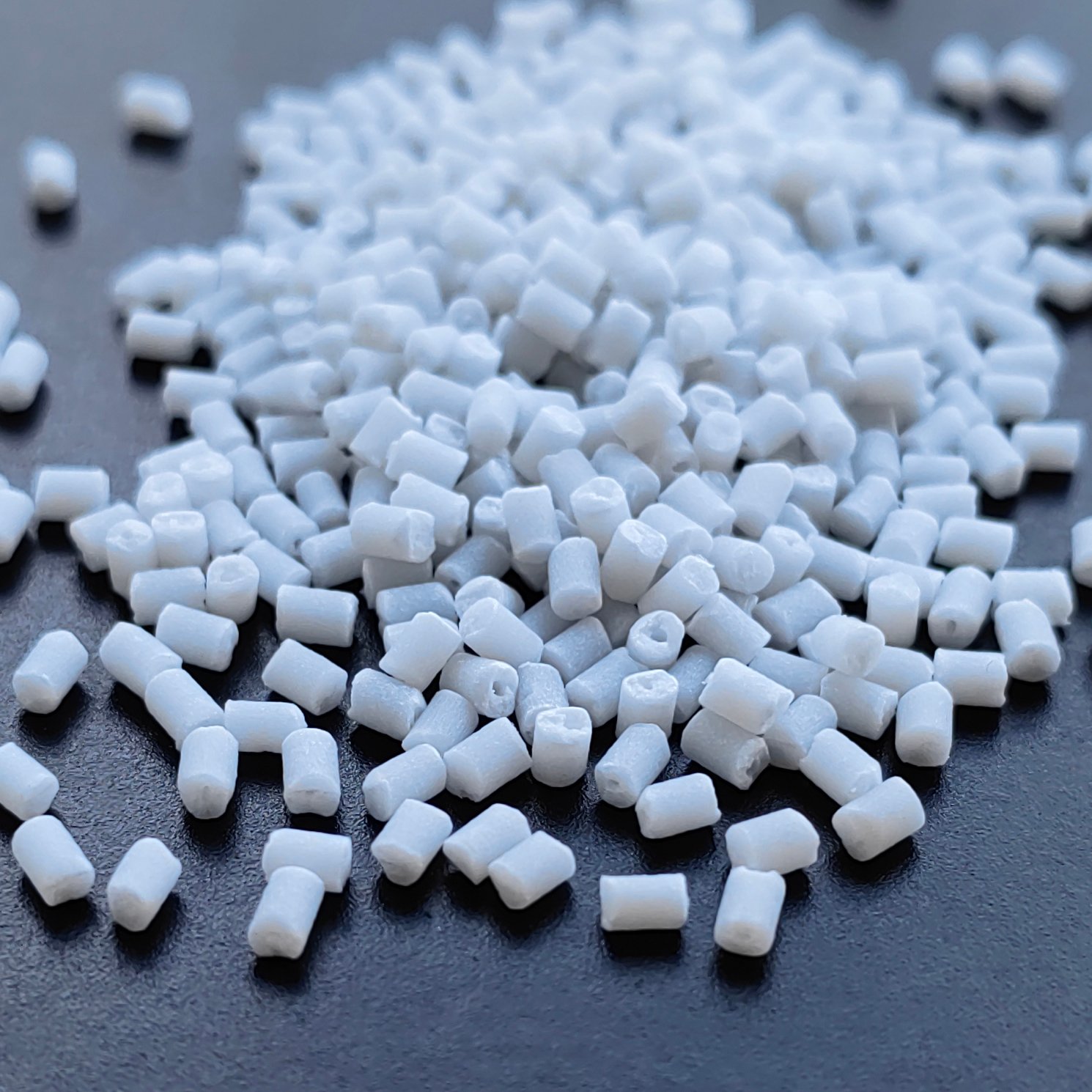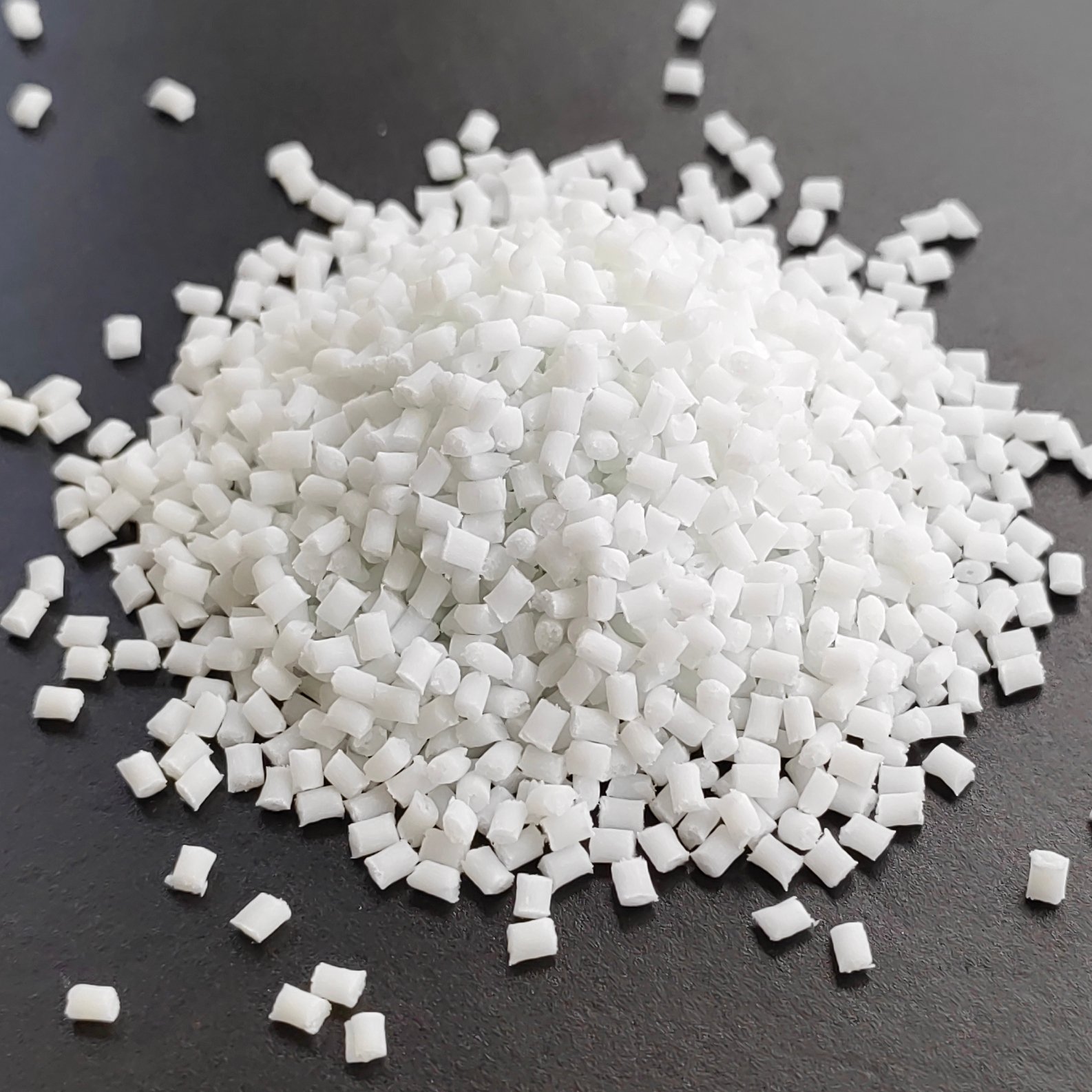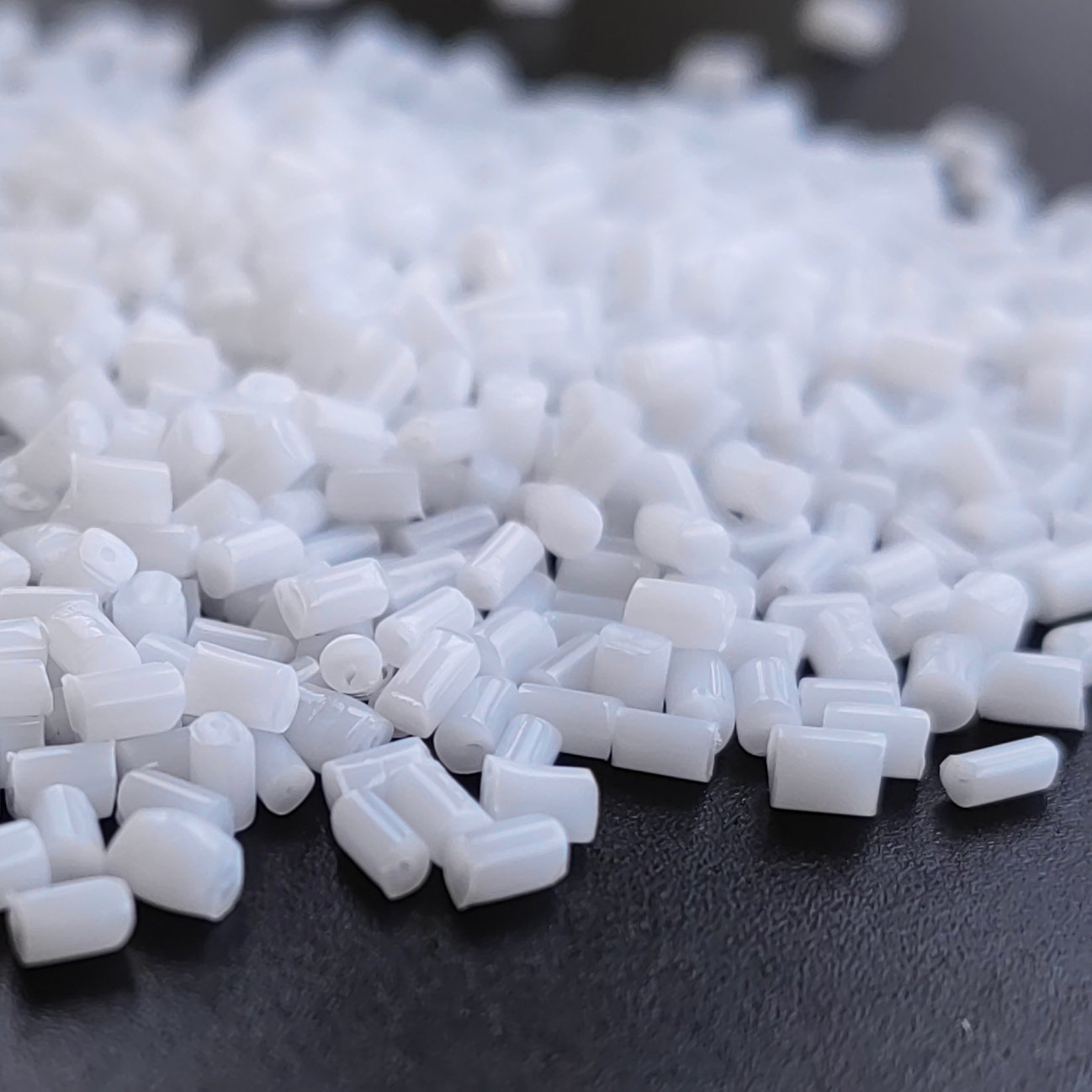PRODUCTS


LUCEL POM FW-710F
Product Struction
Polyoxymethylene (POM), also known as acetal or Delrin, is a high-density crystalline thermoplastic engineering plastic synthesized from formaldehyde and other raw materials. The main types of POM are POM-H (homopolymer) and POM-K (copolymer), both exhibiting excellent physical, mechanical, and chemical properties, particularly outstanding friction resistance.
POM FW-710F is a specific grade of polyoxymethylene. It has a tensile strength of 53 MPa, a static friction coefficient of 0.06, a dynamic friction coefficient of 0.11, and an elongation at break of 50%. Additionally, the material has a Taber wear test result of 10 mg/1000 cycles, a flexural modulus of 2450 MPa, a flexural strength of 83 MPa, and a notched Izod impact strength of 56.12 kJ/m², or 5.10 kJ/m² at 23°C. The heat deflection temperature is 160°C at 0.45 MPa and 110°C at 1.8 MPa. The specific gravity is 1.46 g/cm³, with a shrinkage rate of 1.4% in the flow direction and 1.7% in the vertical direction, and a Rockwell hardness of 70.
POM material features a chain-free structure, presenting as a smooth, glossy, light yellow or white hard material that can be used over a long period within the temperature range of -40°C to 100°C. Its wear resistance and self-lubricating properties surpass most engineering plastics, and it also boasts excellent oil and chemical resistance. When UV stabilizers are added, its ultraviolet resistance is significantly enhanced.
This material is widely used in mechanical parts, electronics, and the automotive industry. Mechanical components such as gears, bearings, cams, and pump parts are chosen for their high strength and wear resistance. In electronics, housings, and switches benefit from its insulation and stability. Automotive applications include fuel system components and door and window controllers, which leverage its excellent oil and chemical resistance.
| Mechanical behavior | Condition | Standard | Value | Unit | |||
| Tensile Strength | Break 23°C | ASTM D638 | 53 | MPa | |||
| Friction Coefficient | Static | ASTM D3702 | 0.06 | ||||
| Friction Coefficient | Dynamic | ASTM D3702 | 0.11 | ||||
| Elongation | 23°C | ASTM D638 | 50 | % | |||
| Tiber wear and tear | ASTM D1044 | 10 | mg/1000cy | ||||
| Flexural Modulus | 23°C | ASTM D790 | 2450 | MPa | |||
| Flexural Strength | 23°C | ASTM D790 | 83 | MPa | |||
| Izod Notch Impact | ASTM D256 | 56.12 | kJ/m² | ||||
| Izod Notch Impact | 23°C | ASTM D256 | 5.10 | kJ/m² | |||
| Thermal | Condition | Standard | Value | Unit | |||
| HDT | Unannealed 0.45MPa | ASTM D648 | 160 | °C | |||
| HDT | Unannealed 1.8MPa | ASTM D648 | 110 | °C | |||
| Physical property | Condition | Standard | Value | Unit | |||
| Density | ASTM D792 | 1.46 | g/cm³ | ||||
| Shrinkage | Flow | ASTM D995 | 1.4 | % | |||
| Shrinkage | xFlow | ASTM D995 | 1.7 | % | |||
| Hardness | Condition | Standard | Value | Unit | |||
| Rockwell Hardness | M(Scale) | ASTM D785 | 70 | ||||
